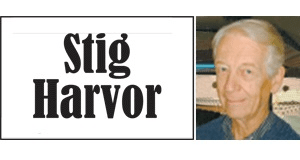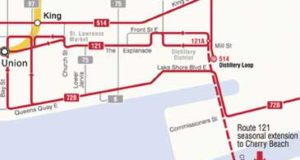 Stig Harvor–
Stig Harvor–
Rob Ford’s long political career exposed the underbelly of our human nature. We are all creatures of emotion and reason. Given particular and unusual economic circumstances, our powerful emotions give rise to political leaders whose policies can hurt even the very people who support them.
An extreme historical example is the frightening rise and disastrous fall of Hitler. An example today is the admiration for dangerous U.S. billionaire Donald Trump in the contest for Republican Party presidential nomination.
Despite his amply demonstrated unfitness for high political office, Rob Ford achieved an adoring Ford Nation of followers.
If cancer had not tragically ended his life at 46 years of age, he might, despite his very troubled record, have won another term in the next mayoralty race of 2018.
It was not, however, as if Toronto voters did not know Rob Ford when he was elected mayor in 2010. It became known he had at an earlier age been convicted of drunk driving in Florida. Charges at the time of possession of marijuana were dropped.
Ford was first elected in 2000 as a suburban city councillor in Etobicoke North, Ward 2. He perfected his contact with his constituents. He constantly answered their phone calls.
He personally attended to their problems, no matter how mundane.
He became the saviour of many detached and disaffected men and women who struggled and felt left out and ignored in a complex modern world.
Ford’s first 10 years established him as a penny-pinching ward healer. He became known as a contrary outsider consistently being the only opposing vote on many city expenditures. He effectively concentrated on small items the public could identify with, like councillors’ office expenditures.
Some people admired Ford’s consistency. He was not a flip-plop politician who did not stick to election pledges. But democracy is messy. It is the art of the possible. Ford’s simple mind was incapable of compromise.
Ford’s mayoralty campaign of 2010 played straight into many citizens’ feelings of economic insecurity, fear and anger engendered by the calamitous world financial breakdown of 2008. Governments were forced to go heavily into debt to bail out collapsing private firms led by greedy cowboy capitalists. The result was large government deficits.
Ford joined the loud chorus of conservative voices in the private mass media, both written and spoken. The Harper federal government kept calling for never-ending tax cuts and reduced government spending.
Ford ran a successful mayoralty campaign supported by two of Toronto’s four daily newspapers. He focused on stopping an imagined City Hall “gravy train”.
He demanded “respect” of taxpayers. He never called Toronto residents “citizens”. We were all just “taxpayers” and “customers”.
Elected mayor, Ford simple-mindedly continued his earlier effective pattern as a suburban ward councillor. He never grew into the demanding role of leader of a big, very diversified megacity.
Ford ignored facts. He appealed directly to people’s emotions. He told people in simple language of only a few syllables what they wanted to hear, not what they needed to know. His endlessly repeated “subways, subways, subways” scrapped carefully laid plans for a city-wide, less expensive Transit City network of above ground transit.
Ford intentionally created the public impression of caring for disadvantaged and poor people by visiting crumbling public housing projects.
He assured residents he would see to it repairs were made. What he did not tell them was he did not provide any extra city dollars for the repairs. The housing authority was forced to cover the costs from their already inadequate funds.
Ford cut and froze taxes. This led to reduced bus services and higher public transit fares. He defended cars and closed bike lanes. The list of short-sighted policies goes on and on.
It all seemed to work at first. But then Ford’s refusal to observe rules of conduct, ignorance of conflict of interest, and inability to work with others became overwhelming. Councillors stripped him of his power as mayor. He became mayor-in-name only. His personal and public life soon bogged down under the weight of his disastrous addictions.
Ford is now dead from an untimely cancer. But his legacy lives on. A number of city councillors still promote his chant of “tax cuts and respect of the taxpayer.” Even our new, more able mayor, John Tory, insists on keeping taxes low despite the clear and urgent need for more city revenue.
It is all a symptom of the irreconcilable differences between the needs of the suburban and inner city exacerbated by the provincially forced 1998 amalgamation of Toronto into a one-size-fits-all megacity. Where do we go from here?
 TheBulletin.ca Journal of Downtown Toronto
TheBulletin.ca Journal of Downtown Toronto

